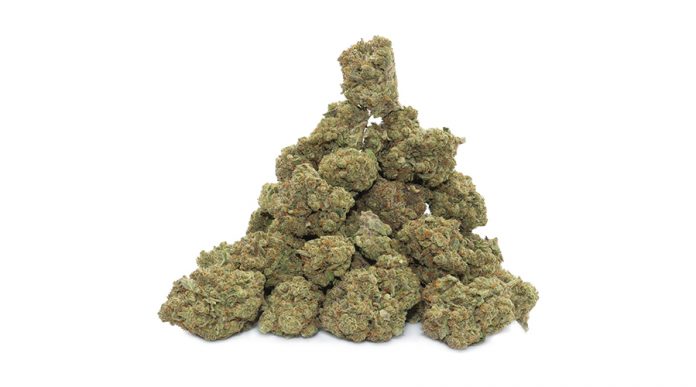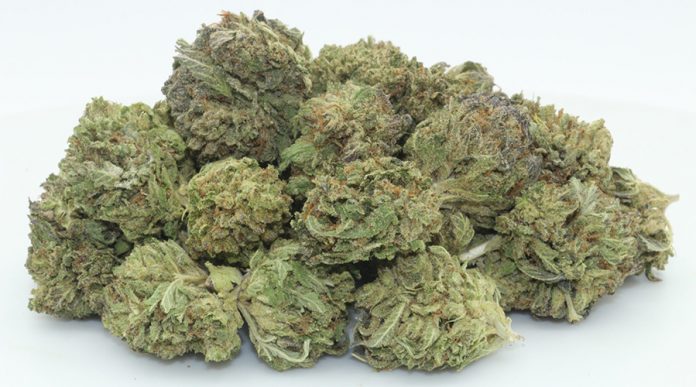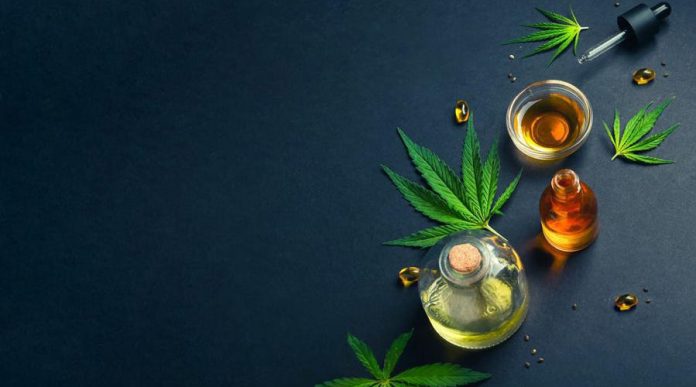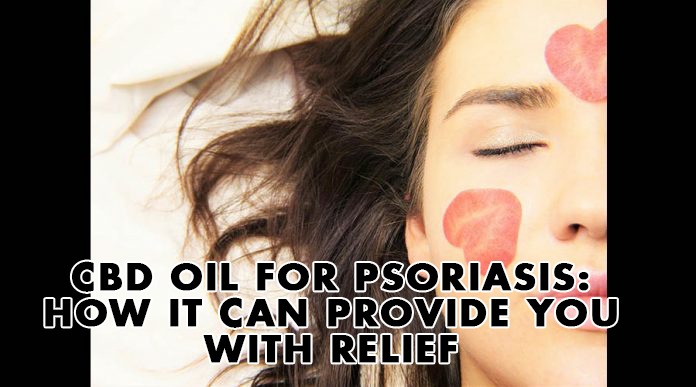
Contents
Psoriasis can cause great discomfort and self-esteem issues, mental health problems and a loss of confidence. Others may suffer from embarrassment, so concerned with hiding their condition that they may even stop leaving the house.
Yet as we all know, the biggest problem is that it’s notoriously difficult to treat. There is no cure for it yet, and a lot of prescribed drugs aren’t effective, which can leave sufferers tearing their hair out in frustration. Flare-ups appear at random times and life gets tough.
There is a light at the end of the tunnel, though. CBD oil has been hailed as a bit of a wonder drug for a variety of ailments, from anxiety and insomnia to cancer – and yes, even psoriasis. In this article, we take a closer look at how it can treat the disease and provide sufferers with an improved quality of life.
Psoriasis Explained
Psoriasis is a debilitating, autoimmune skin condition that has the appearance of red patches on the skin that is typically covered with silvery scales. Sufferers tend to find that it appears on their:
- Lower back
- Scalp
- Knees
- Elbows
It can also appear in other areas of the body.
The patches are quite often small but, when clumped together, they give the appearance of something much bigger. Moreover, they’re often sore and can itch.
Psoriasis varies in severity from individual to individual. Some won’t be too bothered by it (and may barely notice it if, for example, it’s located on their back) but for others, it can be so cumbersome that it causes huge distress. Not just that, but it is a chronic disease that can produce breakouts during which symptoms grow in severity.
Understanding Why Psoriasis Happens
It’s upsetting when psoriasis begins to appear on your skin, and sufferers are often left wondering “why me?”
Moreover, why does it look and feel like it does? And how is it caused?
Those who struggle with it have a greater production of skin cells than most other people. An average person tends to produce new skin cells once a month. Conversely, an individual suffering from psoriasis will see their skin cell production soar to the point where they’re producing new skin cells every week.
When there are too many skin cells in one place, patches begin to form – the first signs of psoriasis. But why do they appear so rapidly?
Unfortunately, the process still isn’t fully understood, but research has found that the immune system which is meant to protect us is at the heart of matters.
How did that happen?!
Your immune system is your body’s first line of defense against attack from foreign invaders – viruses and bacteria – as well as illness. It’s there to protect your body and look after you so that you’re in tip-top shape.
Sometimes, however, it goes haywire and works against you. In a person with psoriasis, the immune system causes inflammation and double downs on the production of new skin cells.
As psoriasis.org points out, a normal immune system is able to protect the individual against an attack by eliminating foreign proteins, viruses and bacteria. When an individual has the condition, however, their immune system doesn’t work properly and instead engages in “friendly fire.”
Then, new skin cells are rolled out too quickly, with inflammation resulting.
Why Other Drugs Haven’t Worked
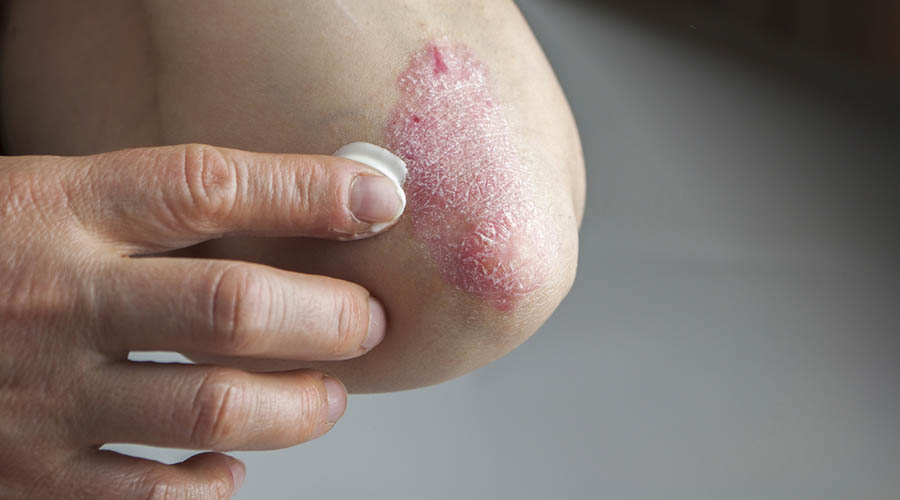
Psoriasis isn’t contagious and flare-ups are usually linked to changes in the environment and stress. There is no known cure – and the drugs that are available aren’t always effective. Even when the condition is mild, doctors recommend taking more than one type of drug to ease your symptoms, or to keep switching treatments until you find one that works for you. Not exactly great news.
One of the problems with attempts to control it with certain medications is that the cause is still relatively misunderstood. While there are links between a misfiring immune system and psoriasis, research is still ongoing into how the process works.
As such, pharmaceutical companies have been producing biologic and systemic drugs that target specific immune cells, so as to modify (or block) its response. Methotrexate is one such drug that targets the immune system, but it also impacts other systems in the body as well, thus rendering it underwhelming as a treatment.
How CBD Oil Can Treat Psoriasis
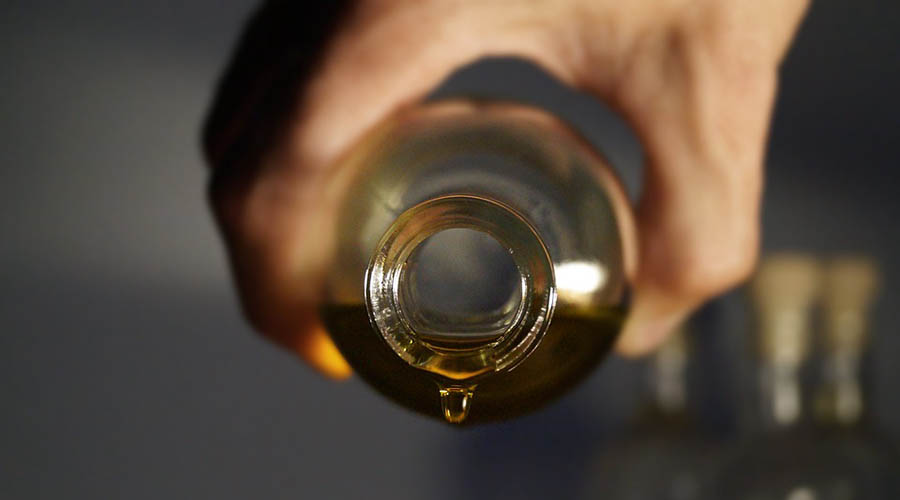
Numerous studies have shown that CBD can treat the condition. There are a few reasons for this. One is that cannabidiol has been proven to put the breaks on T-cell production – which is a key element in stopping it.
Psoriasis is often known as the “T-cell mediated disease,” at least in medical circles. This is because the type of immune system cells that play a key role in the formation of psoriasis are called T-cells. These cells circulate naturally through your system, actively on the lookout for foreign invaders. When the invader (or virus) is established, it activates the T-cell, which then sends the immune system spiralling into overdrive in an individual with psoriasis.
Secondly, because cannabidiol puts the breaks on T-cell production, it effectively suppresses the immune system and its memory, which then gives the oil the chance to prevent autoimmune attacks from occurring again. In other words, CBD stops your system from attacking itself. Thus, new skin production is slowed to once a month. Yay.
The oil is also anti-inflammatory and helps your body to produce more endocannabinoid’s. Your skin relies on an adequate amount of endocannabinoid receptors to provide therapeutic effects. When your body doesn’t produce enough of them, skin ailments such as psoriasis are able to rear their ugly heads.
Researcher and professor Emerita of Hebrew University Ruth Gallily says that hemp “in the right hands … it could really help a lot of people.”
Benefits of CBD Oil For Those With Psoriasis
Psoriasis is a debilitating skin condition and chronic disease that can leave the sufferer in pain. Fortunately, there are a variety of benefits that CBD brings with it. Here are some:
Reduces Itching
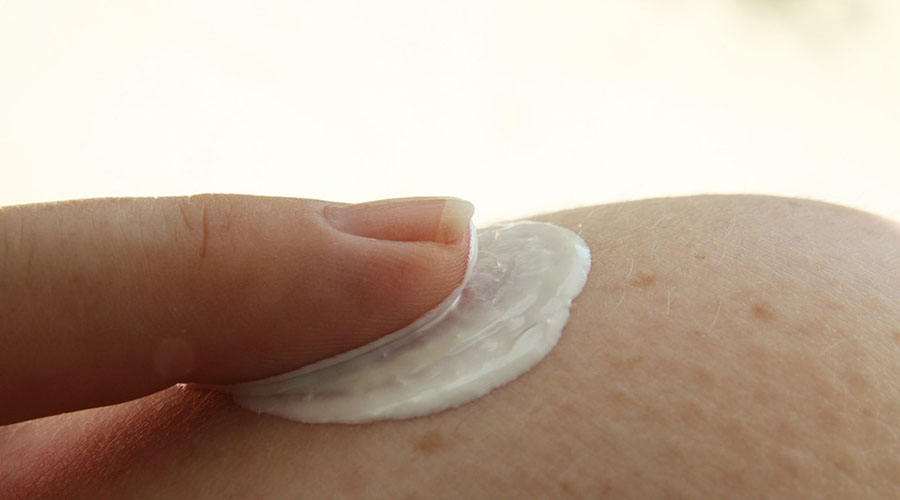
Ask anyone who’s suffering from a terrible itch, and they’ll liken it to terrible pain. Psoriasis sufferers have a lot to deal with because, when we itch, it’s the skin cells nearest to our skin that become irritated.
And as we’ve learned, psoriasis sufferers have a lot more skin cells than your average person.
To help you through the living hell of itching, consider turning to CBD products. The cannabinoids have been researched for their effects on itching, with a recent review concluding that they have a role to play in dermatology treatments. Indeed, creams containing chemicals that impact cannabinoid type-1 receptors can minimize itching in patients with the likes of lichen simplex and prurigo (lesions and scarring which can be a result of excessive scratching).
More research published in the British Journal of Dermatology has also demonstrated that it can help with itching.
Controls Pain
The pain commonly associated with the disease can make your skin crawl. One of the reasons the skin condition is so painful at times is that nerve endings are being blocked, resulting in pain and discomfort. They can whip your skin into a frenzy.
Other reasons psoriasis might cause pain include dry skin. If your skin is already dry, or if it’s inflamed, those red patches will get sore.
CBD oil has already been studied extensively and proven to help with chronic pain. It’s used by individuals who have arthritis and multiple sclerosis, as well as psoriasis.
However, it’s worth pointing out that, while CBD oil can certainly reduce pain and discomfort during a breakout, other studies have shown that it’s often better to take additional measures with the oil to be the most effective against the pain.
Here are some tips to help you minimize psoriasis pain:
- Apply lotions – Lotions with glycolic or lactic acids can soften your scales, breaking up dead skin cells and relieving pain. Apply at night, cover with a plastic wrap, take your CBD oil and get some rest
- Apply a cold pack – Applying cold packs to the affected areas can limit pain and itching by tricking your brain into thinking the area is no longer painful or itchy. Instead, it’s just very cold
- Have a bath – If you’re a shower person, it’s time to get back in the tub. Fill your bath up with water and Epsom salts and get in for at least 15 minutes. This should ease the pain and the itch
Slows Down Cell Growth
As mentioned, the prime reason psoriasis occurs is because the body’s skin cell production has gone rogue. New skin cells are produced too fast, and this causes painful, itchy rashes to appear on the skin.
Research has shown that cannabinoids can contribute to the way cells are made and die. They can control cell production, tolerance, proliferation and death. Reports have confirmed that this role taken on by the cannabinoids present in CBD are able to prevent the development of psoriasis and other skin ailments, such as acne and eczema.
Moreover, the oil is anti-inflammatory, which is important to note. When an individual is suffering from psoriasis, the rapid-fire rate at which skin cells are produced causes skin tissue breakage, pain and itchiness. Reviews have demonstrated that CBD can treat inflammatory diseases like this one thanks to the fact that it enjoins the CB2 receptor to assert its biochemical action on the individual’s immune system.
Softens and Conditions The Skin
Because it contains omega 3 and 6 fatty acids, hemp oil can condition and soften skin affected by psoriasis. In this way, it acts as a moisturizer that can moisturize dry skin. As mentioned, dry skin is one of the reasons it becomes so irritated and painful.
Heals Wounds
Even when the pain, soreness and redness has gone away, you’re still left with scars and wounds.
The good news is that hemp oil can even help clear up wounds. It can instigate the healing process for wounds that are still cracked and bleeding.
Studies in mice in 2016 showed the link between cannabinoid receptors and wound repair, while certain anti-inflammatory agents found in the oil are able to accelerate the healing process, too.
It’s also anticipated that future CBD products can treat open sores caused by psoriasis as well.
Treats Anxiety
As a bonus, CBD also helps with anxiety and stress. Individuals suffering from psoriasis are prone to depression and anxiety. Because depression, anxiety and stress are known causes of a flare-up, it’s a vicious cycle.
CBD oil and anxiety has been extensively researched and the news is good: CBD is able to restore calm and peace of mind to the individual by interacting with CB1 and CB2 receptors – a pair of receptors found in your central nervous system that, once impacted by CBD, modify serotonin signals.
Serotonin is otherwise known as the “happy chemical” and it plays a key role in your mental health. When an individual has low levels of serotonin, anxiety, depression and a general gloom can set in.
Many people are now managing their anxiety and depression with hemp, which brings positive news to those suffering from psoriasis.
How To Treat Psoriasis With CBD Oil
There are, of course, a few different types of CBD products available to purchase, ranging from vaporizers to oils and balms. This means you can take the oil topically or orally.
In most cases, it’s generally accepted that oils, lotions and balms applied topically provide the best pain relief to skin damaged by psoriasis. However you decide to take the oil, it’s important to note that its effects will vary according to the quality of the oil in question, as well as the dosage.
That said, you can also take CBD orally and see great results. By doing this, you’re also targeting the skin and your immune system.
Alternatively, and if your budget allows, you could also take CBD both orally and topically with tinctures and balms.
It’s a smart idea to go for full-spectrum CBD oils that are 100% natural and organic, and to do your research before making a purchase.
Conclusion
If you’re currently struggling with a psoriasis flare-up, or if you have psoriasis and are expecting a flare-up again soon, you must look after your skin. Your skin is your most visible organ. It’s delicate and it needs tender love and care.
While looking after and controlling your psoriasis with CBD oil is highly recommended, you should take the time to treat your skin in other ways, too. Nurture your skin with balms and natural butters, take warm baths infused with gentle soaps, and when you do take showers, use all-natural gels that will help to balance the pH level of your skin.



